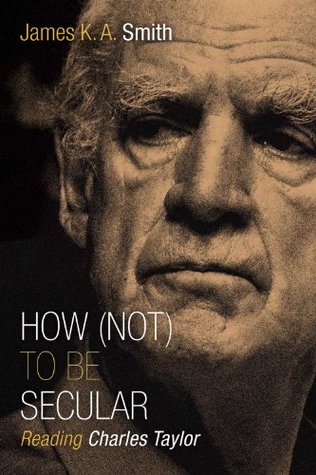More on this book
Community
Kindle Notes & Highlights
Read between
May 26 - August 12, 2020
“Humans are no longer charter members of the cosmos, but occupy merely a narrow band of recent time,”
even believers end up defending a theistic universe rather than the biblical cosmos.
But this supposed “pure face-off between ‘religion’ and ‘science’ is a chimaera, or rather, an ideological construct. In reality, there is a struggle between thinkers with complex, many-levelled agendas”
the poet has to create a/the world.
art is decontextualized from its religious origins and then recontextualized as “art.”
And conveniently, art is never going to ask of you anything you wouldn’t want to do. So we get significance without any ascetic moral burden.
just because you’re paranoid doesn’t mean they’re not after you.)
The upshot is a hermeneutics of suspicion; if someone tells you that he or she has converted to unbelief because of science, don’t believe them.
Converts to unbelief always tell subtraction stories.
And the belief such persons have converted from has usually been an immature, Sunday-schoolish faith that could be easily toppled.
a conversion to a new faith: “faith in science’s ability”
rather to offer an alternative story that offers a more robust, complex understanding of the Christian faith.
While such a universe might have nothing to offer us by way of comfort, it’s also true that “in such a universe, nothing is demanded of us”
“Each is comforted in their position by the thought that the only alternative is so utterly repulsive.”
we shouldn’t forget the spiritual costs of various kinds of forced conformity:
“committed secularism remains the creed of a relatively small minority”
why do secularists so confidently assume that this is just “the way things are”
Do you see the transcendent as “a threat, a dangerous temptation, a distraction, or an obstacle to our greatest good”?
an unchallenged framework, something we have trouble often thinking ourselves outside
way of convincing oneself that one’s reading is obvious, compelling, allowing of no cavil or demurral”
The death of God is seen as an effect of the deliverances of science and the shape of contemporary moral experience.
Taylor, the “arguments” don’t really hold up. So why are people captivated by this story? What makes them convert? How do we account for the power of bad arguments
exclusive humanism sets up a dichotomy between religion (Christianity) and humanism.
it’s not Christianity versus exclusive humanism, but rather Christian humanism versus exclusive humanism.
we can find here an exhilarating challenge, which inspires us, which can even awaken a sense of the strange beauty
But it can also be terrifying,
1. Agency: “the sense that we aren’t just determined, that we are active, building, creating, shaping agents”; 2. Ethics: “we have higher spiritual/ethical motives” that don’t reduce to biological instinct or “base” drives; and 3. Aesthetics: “Art, Nature moves us” because of a sense of meaning; these are not just differential responses to pleasure.
The moral is transferred to a therapeutic register; in doing so we move from responsibility to victimhood.
In the name of securing our freedom, we swap submission to the priest for submission to the therapist.
What makes me impatient are the positions that are put forward as conversation-stoppers: I have a three-line argument which shows that your position is absurd or impossible or totally immoral.
“Some people hold that one shouldn’t ask this meta-question, that one should train oneself not to feel the need.” However, it’s also not easily suppressed,
One might die for God, or the Revolution, or the classless society, but not for meaning”
we don’t know how to make people moral, but we do know how to specify rules,
no code can anticipate every vagary of circumstance;
These are all epistemological concerns that see the problem as one of knowledge
codes don’t make people care for their neighbor.


